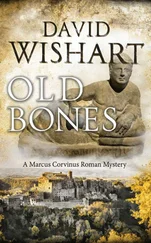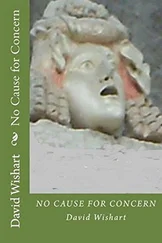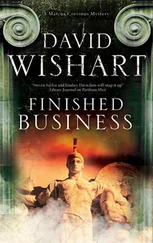David Wishart - Foreign Bodies
Здесь есть возможность читать онлайн «David Wishart - Foreign Bodies» весь текст электронной книги совершенно бесплатно (целиком полную версию без сокращений). В некоторых случаях можно слушать аудио, скачать через торрент в формате fb2 и присутствует краткое содержание. Год выпуска: 2016, ISBN: 2016, Издательство: Severn House Publishers, Жанр: Исторический детектив, на английском языке. Описание произведения, (предисловие) а так же отзывы посетителей доступны на портале библиотеки ЛибКат.
- Название:Foreign Bodies
- Автор:
- Издательство:Severn House Publishers
- Жанр:
- Год:2016
- ISBN:9781780107936
- Рейтинг книги:3 / 5. Голосов: 1
-
Избранное:Добавить в избранное
- Отзывы:
-
Ваша оценка:
- 60
- 1
- 2
- 3
- 4
- 5
Foreign Bodies: краткое содержание, описание и аннотация
Предлагаем к чтению аннотацию, описание, краткое содержание или предисловие (зависит от того, что написал сам автор книги «Foreign Bodies»). Если вы не нашли необходимую информацию о книге — напишите в комментариях, мы постараемся отыскать её.
Foreign Bodies — читать онлайн бесплатно полную книгу (весь текст) целиком
Ниже представлен текст книги, разбитый по страницам. Система сохранения места последней прочитанной страницы, позволяет с удобством читать онлайн бесплатно книгу «Foreign Bodies», без необходимости каждый раз заново искать на чём Вы остановились. Поставьте закладку, и сможете в любой момент перейти на страницу, на которой закончили чтение.
Интервал:
Закладка:
‘His family’s one of the oldest in Lugdunum. They were chieftains of the Segusiavi – that’s the local tribe – long before the Romans came, perhaps even before the Greeks settled Massilia. He’s rather come down in the world these past twenty years. More or less since the time Tiberius and I moved down here.’
‘You’re not from Lugdunum originally?’ I said.
‘No. From Augusta, up north near the border.’ Yes, of course; Claudius had mentioned something of the kind when he’d told me the story about his father and the bulls. ‘Tiberius’s family were wine-merchants there, mine, too, as it happens. Four generations in both cases. Only he decided that he’d do better further south, between Massilia and the big northern markets, especially the military bases on the Rhine. Control things from first to last, production to point of sale. Lugdunum was the obvious choice.’
‘You go back often?’
‘To Augusta? No, there’s no point now. Both sets of parents are long dead.’
‘You’ve no other family? Either of you?’
‘I have a sister and a brother, but we lost touch after my marriage, and they’ve gone their own ways long since. We – the company, I should say – still have a warehouse outlet in the town that used to belong to Tiberius’s father, and Quintus is up and down regularly on business, so the family connection still holds.’
‘Quintus is your husband’s business partner, isn’t he?’ I said.
‘That’s right. And only surviving brother. There was a third, but he died. They split responsibility for the route between them. Tiberius managed things at the Massilia end, the buying and so on, and arranged delivery to Lugdunum, Quintus organized transportation from here to Augusta and beyond. Plus, of course, he handled the incoming cash side of things in the shape of customer deposits and final payments. It worked out quite well.’ She half-smiled, for the first time. It changed her expression completely, and I realized that this dumpy, middle-aged Gallic matron must have been quite a looker twenty years back. ‘But we’ve become side-tracked. You were asking about Julius Oppianus.’
‘He was a business rival?’
‘Oh, no; I don’t think he has any business interests, or indeed any interest in business, whatsoever. In fact, he rather despises businessmen like my husband. That was the root of the problem, really.’
‘How do you mean?’
She straightened a fold in her over-tunic. ‘I said: Oppianus belongs to one of the oldest families in Gaul. A hundred years ago they owned half the countryside for twenty miles around, and naturally they provided most of the tribal leaders. Then, of course, when you Romans came the world changed completely, and unfortunately they – Oppianus’s grandfather and father – didn’t change with it. Land had to be sold, and by the time Oppianus came into the estate when his father died twenty-odd years ago there was very little left. Enough for him to live on, certainly, but only a shadow of what there was before. And things haven’t become any easier in the interim. Quite the reverse.’
‘So where did the bad feeling between him and your husband come in? Specifically, I mean?’
‘It didn’t, not at all, not on Tiberius’s side. But Oppianus can be very … How to put this?’ She thought for a moment, and I waited. ‘You must have the same situation in Rome, particularly nowadays when the old order of things is changing, and it’s even more common here, where things have happened so much faster. Some members of the old aristocracy feel that they’ve been bypassed. Supplanted. They find that men whose fathers and grandfathers used to be their fathers’ or grandfathers’ clients or dependants have moved up the financial and social ladder and consequently expect to be treated as equals, even superiors. People like Tiberius, who’ve made their money by trade, are the worst of all, particularly since the new system positively encourages them to become involved in the civic government side of things, which the old families consider their personal preserve. In Tiberius’s case the situation was made even worse by the fact that, as I said, we were comparative newcomers to Lugdunum, and privileged clients of the imperial family, at that. When Tiberius was first elected on to the board of local magistrates ten years ago, Oppianus found it very hard to accept; and, of course, the fact that he was chosen to represent Lugdunum at this year’s Pan-Gallic Assembly was the last straw.’
Yeah; that was another thing that Claudius had mentioned; the governor, too. ‘That’s quite an important event, isn’t it?’ I said.
‘Oh, goodness, yes! Being Roman, you wouldn’t appreciate just how much, but being elected as the representative is the greatest honour the city can give. And what made matters worse was that Oppianus’s grandfather had been the officiating priest at the original ceremony, when the emperor’s father dedicated the altar sixty years ago.’
Uh-huh. ‘So with your husband dead there’ll have to be a new appointment made, yes?’
‘Naturally, and under the circumstances it may well be Oppianus. But that’s no reason to think he’s a murderer.’
‘You know where I’d find him?’
‘He owns one of the properties on the Hinge, opposite the theatre.’ She gave me a straight look. ‘I’ll tell you once more, Valerius Corvinus, just so that it’s clear: the gods know that Julius Oppianus was no friend to my husband, or to our family, but he did not kill Tiberius. That I will not believe. The man hasn’t got it in him.’
Fair enough; me, I’d suspend judgement, at least until I’d met him myself. Even so, in my book he had sufficient motive to be at least one of the front runners, if not the only option going. ‘And your brother-in-law? Where does he live?’
She frowned. ‘Quintus? Why would you want to talk to Quintus? He wasn’t here at the time.’
‘No specific reason. I’m just putting information together at present, getting different angles.’
‘Well, you might find him at home – his house is outside the walls, on the Rhone Road just beyond the Arar Gate – but during the day he’ll more likely be at the office over in the Canabae.’
‘Across the Rhone?’
‘That’s right. The other side of Rhone Gate Bridge. His – our – office is in the south part, by the river itself and facing the port. I’m afraid I can’t give you more detailed directions, because it’s mostly warehouses around there, but anyone you ask should be able to point it out to you.’
‘Fine,’ I said. ‘Now I wonder if I could have a look at-’
‘Who’s this, Mother?’
I turned. A youngster – from his adult tunic he must’ve been in his mid-teens, at least, although he looked about twelve – had come into the room from the inner part of the house.
‘Ah, Publius.’ Diligenta smiled. ‘This is Valerius Corvinus, the gentleman we were expecting from Rome.’
‘Hi,’ I said.
The kid didn’t answer, just gave a brief nod, and the look I was getting was … wary? Suspicious? I couldn’t place it, exactly, but it certainly wasn’t friendly. Diligenta turned back to me.
‘I’m sorry,’ she said. ‘You were saying. You wanted to see …?’
‘Oh. Yeah. Just the inside of the summer house, briefly, if that’s possible.’
‘Of course it’s possible.’ She hesitated. ‘But perhaps … if you don’t mind going down there by yourself? I’m still a little-’
‘Yeah, sure,’ I said quickly. ‘No problem. Or perhaps Publius here could show me?’ It’d give me a chance to talk to him, at least.
‘Of course,’ she said again. ‘Publius? If you wouldn’t mind, dear?’
He shrugged. ‘Sure.’
Читать дальшеИнтервал:
Закладка:
Похожие книги на «Foreign Bodies»
Представляем Вашему вниманию похожие книги на «Foreign Bodies» списком для выбора. Мы отобрали схожую по названию и смыслу литературу в надежде предоставить читателям больше вариантов отыскать новые, интересные, ещё непрочитанные произведения.
Обсуждение, отзывы о книге «Foreign Bodies» и просто собственные мнения читателей. Оставьте ваши комментарии, напишите, что Вы думаете о произведении, его смысле или главных героях. Укажите что конкретно понравилось, а что нет, и почему Вы так считаете.












